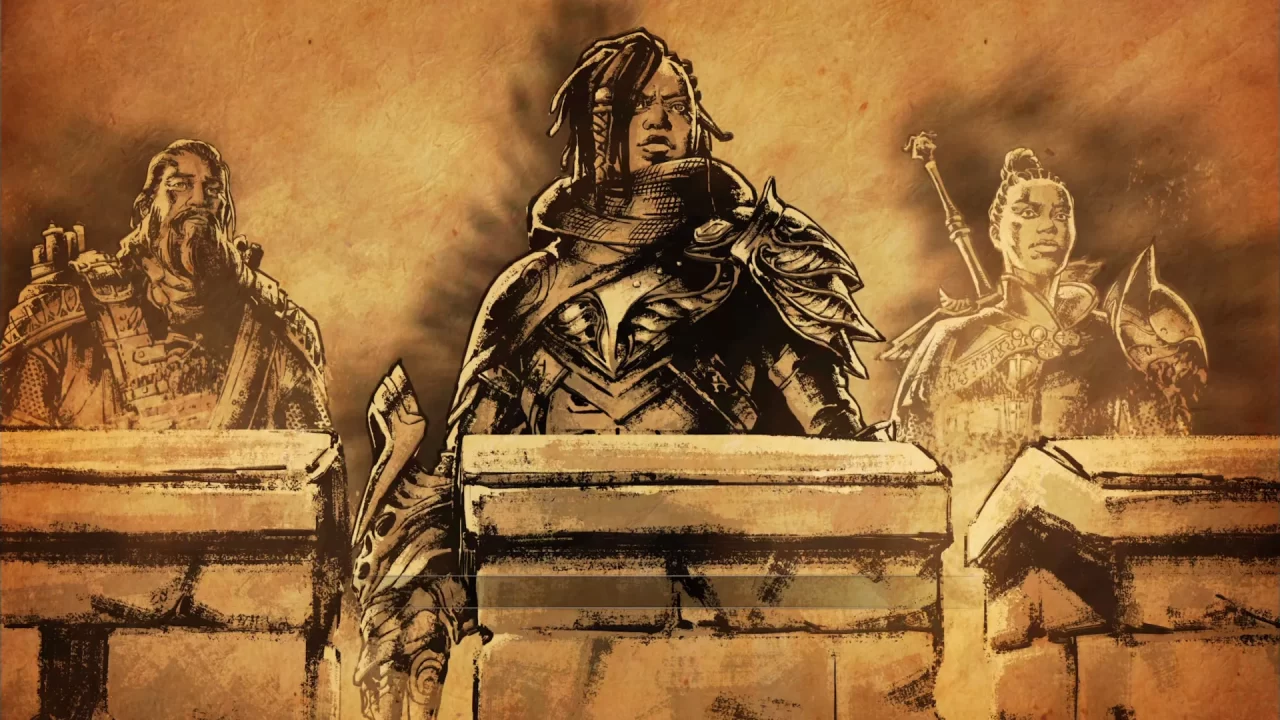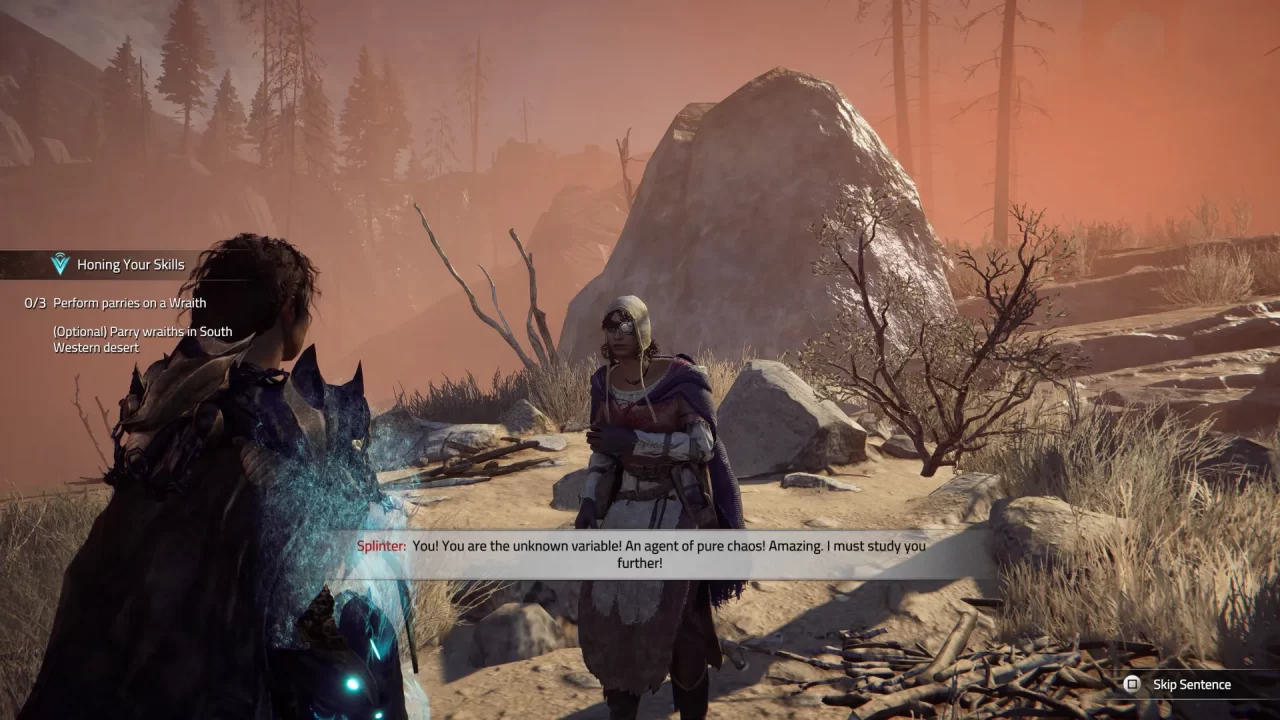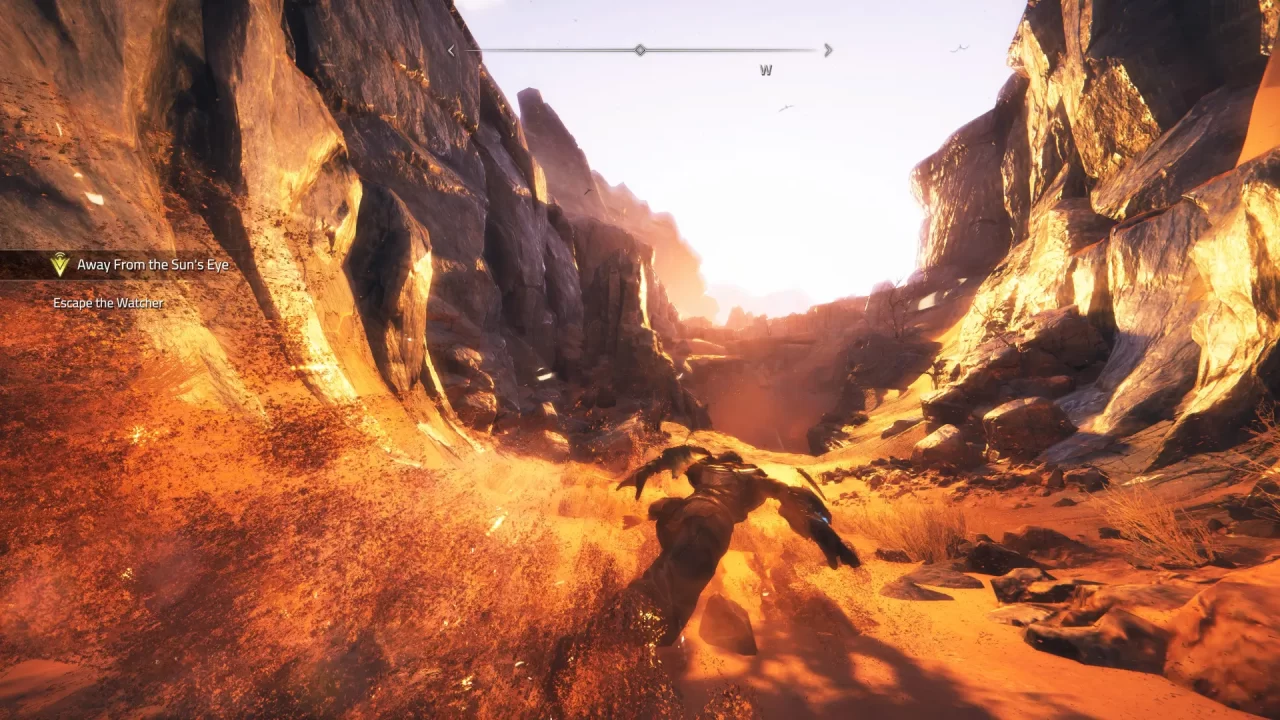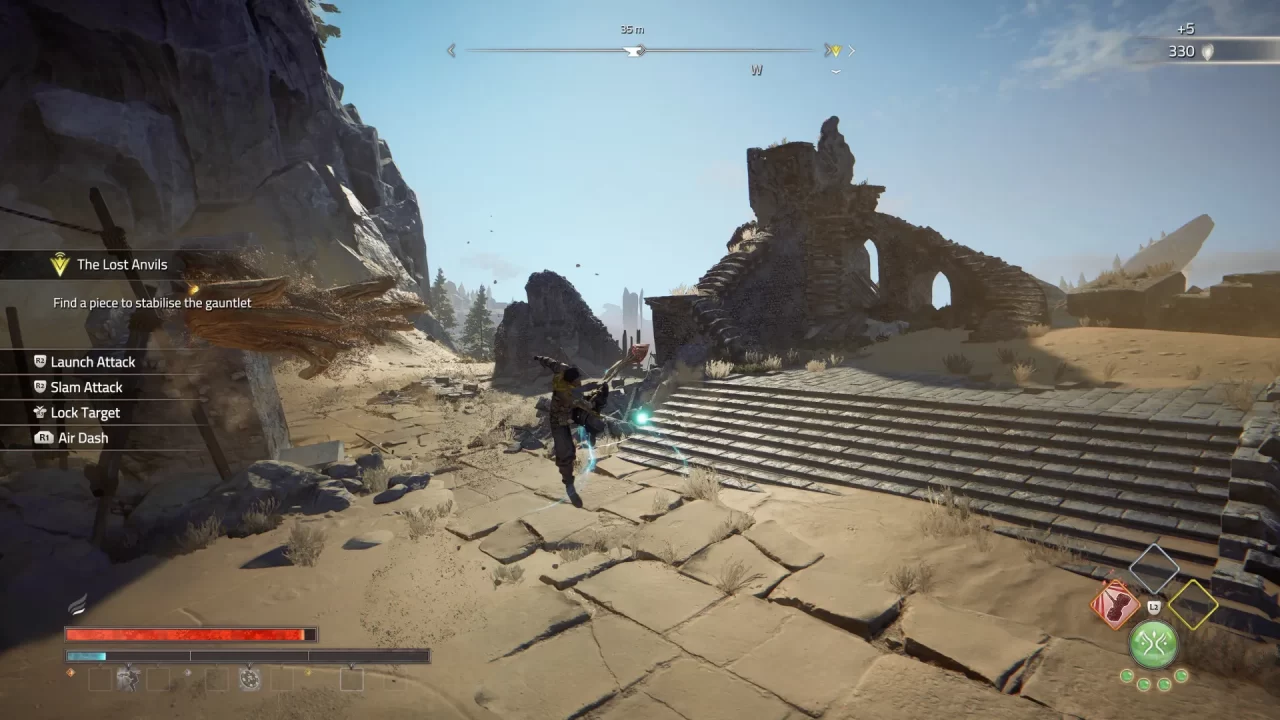Shifting sands can reveal hidden, lost treasures. But they can also, disappointingly and just as quickly disappointingly, reveal nothing of great import. Open-world co-op RPG Atlas Fallen falls into neither category. Instead, the swirling desert sands making up much of the game’s world reveal a serviceable, if not necessarily inspiring, RPG by developer Deck13 Interactive and publisher Focus Entertainment. The main campaign’s roughly 25-hour journey entertains enough, but you won’t want to immediately dive into the game again afterward.
After an intriguing prologue in which a mysterious blue being navigates through an otherworldly realm, you create your character and begin the journey proper. You play an Unnamed, a caste of people looked down on by the rest of the theologically minded populace worshiping the God of Order, Thelos. The Unnamed perform every demeaning form of labor that “decent” folks won’t touch. Despite the world of Atlas’ inherent dangers, the Unnamed are often sent in droves to transport Essence, a vital resource required by Thelos. The most significant dangers are nightmarish creatures of sand called Wraiths, monsters that even seasoned fighters want nothing to do with.
Waking up in your caravan camp following a sudden attack by these Wraiths, you discover that your Unnamed numbers are dwindling. Sent to the wasteland as punishment for speaking up against the Unnamed’s poor treatment, you uncover a mysterious Gauntlet with a disembodied voice. Events soon see you separated from the rest of your caravan, viewed as a heretic by those who worship Thelos. Gaining access to the mysterious Gauntlet’s power, you suddenly can fight on equal footing with the Wraiths, provided you can stabilize said Gauntlet and not blow up first. Thus, accompanied by the enigmatic Nyaal, who resides inside the Gauntlet, you begin your journey across Atlas, fighting monstrous Wraiths and helping folks along the way to eventually topple an uncaring god.
That’s the gist of Atlas Fallen’s story. You encounter a few interesting reveals here and there, such as Nyaal’s true identity, but it isn’t the most original fantasy story. I give the game credit for having a handful of recurring NPCs you encounter along your journey through its vast regions since you get to see their stories play out as you perform side quests and move the main quest along. These NPCs include the helpful Traveling Vendor (always a welcome sight), the chaotic researcher Splinter, and the elderly-yet-capable Tracker. The Knights of Bastengar plotline, specifically the atoning Arif and the determined leader Khendra both trying to make sense of the loss of Khendra’s sister and what the Gauntlet represents, is the main story highlight despite much of their story being optional. But, truthfully, there just isn’t much to the narrative that you haven’t already seen in other RPGs of this ilk. Even when given dialogue choices for your player character, the Gauntlet Bearer never steps out of the Good Samaritan role. The trope works for the character and plot being told, especially in light of how cruel the adversaries can be by comparison, but it simply makes the dialogue options superfluous.
The driving force behind Atlas Fallen, and probably the main reason you’ll play the game at all, is its gameplay mechanic of sand manipulation. The Gauntlet allows you to battle gigantic foes in much the same vein as the monster-hunting series God Eater by transforming the Gauntlet into different weapons. These forms include a massive hammer, a sword-whip, and gigantic martial arts gloves. I preferred the hand-to-hand combat style of the gloves, so I usually equipped Knuckledust as my primary weapon with the whip as my secondary when I needed to get some distance between myself and my enemies. You switch between your two equipped weapon types with the press of a button, creating combos in quick succession. Every time you damage an enemy, you gain momentum, a type of energy that allows you to perform a special attack when you accumulate enough of it. This attack can crystallize a foe, allowing you to perform a devastating combo. Conversely, you can lose momentum when hit, so learning to evade is crucial.
The Gauntlet also allows you to equip Essence Stones, providing access to all sorts of passive and active abilities wielded in combat, such as special attacks or increased damage output when facing multiple foes. Essence Stones become upgraded with collected resources to enhance their potency further, and it’s essential to keep an assortment of upgraded Essence Stones on hand to experiment with in combat. You can also enhance and upgrade your armor pieces to improve your overall stats and gain special trait bonuses called Perks. There’s no traditional EXP-based level-up system in Atlas Fallen. Instead, you improve stats and abilities through constantly upgrading equipment.
Likewise, the Gauntlet has unique abilities to assist you on your travels throughout the desert outside combat. Air Dash allows you to jump and propel yourself a longer distance through the air, while Reveal helps you see and uncover hidden objects of interest. Crush joins the fray later, granting access to previously inaccessible chests and areas. To advance the primary story campaign, you must improve these skills by collecting shards throughout Atlas.
From a gameplay stance, there isn’t much negative to say about Atlas Fallen. The pieces gel together nicely, though the whole isn’t the most inspiring. It even offers a co-op experience if you prefer playing games with others, but it is perfectly serviceable as a solo experience. If you’ve ever played an action RPG set in an open world, you know what to expect from Atlas Fallen. Exploration brings to mind the likes of GreedFall or Forspoken, especially with how often you must dash and climb through the world. At the same time, the monster-fighting is reminiscent of Monster Hunter and God Eater in particular. Combat is fast and fluid but offers no new gimmicks to help it stand out from similar action RPGs. Depending on how upgraded your equipment is, you’ll feel equally frustrated or pleased with the outcome of fights, and quests play out just as one expects. Even the touted sand surfing mechanic, while fun in the earlier portions of the game, becomes an afterthought the more you play, primarily since the Anvils you uncover throughout the game provide fast travel throughout the world map. The camera angles can frustrate at times, depending on the way fights play out or if you’re trying to take note of something at a specific angle, but they aren’t terrible in that regard either. You can manually save, but the game also auto-saves quite frequently, which is a blessing depending on how badly you time a jump or if you get into a fight you’re ill-prepared for.
The English voice acting is decent enough, and the soundscape fits the title’s atmosphere. I like the little touch of having bards playing in the background and the subtly changing music in settlements, though, again, I’m hard-pressed to say there are any standout tracks beyond perhaps the piano arrangement of the main theme. Visually, Atlas Fallen manages a presentable appearance but doesn’t differentiate itself from other open-world RPGs with its graphics or UI. However, I do appreciate that the game offers accessibility options to choose from, such as differing subtitle background colors and font sizes!
Atlas Fallen isn’t a terrible game by any stretch of the imagination, nor an exceedingly memorable one. Still, I did enjoy the time I spent playing it and think it serves as a decent diversion, if nothing else. I don’t recommend buying at full price, but I could see it being a game one might purchase at a discount later and have fun with. With the shifting of sands and the passage of time, Atlas Fallen can become a pleasant surprise for those who might eventually unearth it.







